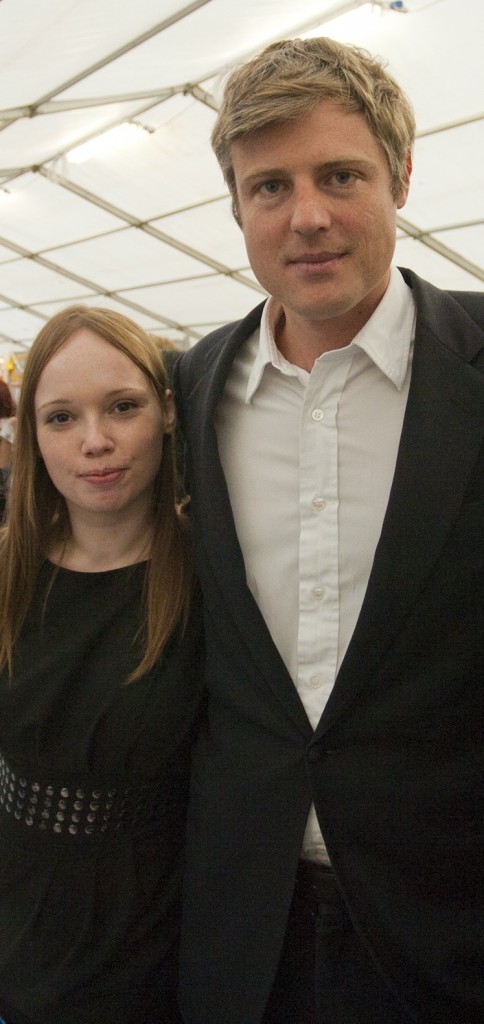Is feminism a dirty word? You would think so by how some people respond to the word.
Feminism is not an easy subject to write about. It has so many connotations. So many people have an opinion on it. It brings up images of women burning bras and hating men. Losing the entire point of it: equality.
What I started writing this article I put out a twitter and Facebook plea for comments about feminism. Tamsin Omond came up with a fabulous quote from J.Winterstone on lesbians: ‘they have a confidence about them that doesn’t depend on the male view. that is sexy and it is new.’
Then came the obvious,
Forbes KB: ‘Right after you finished the washing up and the ironing I hope!’ Luckily, I know he is joking.
Darren Errol Clarke did much better: ‘I dislike the word “Feminism”! It conjures up so many wrong images. Everything should be about sharing and equality, but the name doesn’t depict that!
A warrior from the Amazon once said that she was shocked that Western women were so …weak and that they were referred to as “Flowers”! She was upset that she couldn’t “See” the flowers that they were talking about. She said, “Flowers are strong, adapting, versatile and beyond the visual. A flower can be destroyed, yet come back as beautiful as before and more than before. The humans I see before more me represent nothing more than a shadow of their true potential.”
Whilst man has a lot to answer for in history, women have come through and stamped their individuality through out. I think that when women were striving to be better than the men that suppressed them they were irrepressible, but now they have joined in the drunken madness that is today’s civilization. I hope that the mantle isn’t totally buried, as it would be nice to see more women bring true equality to the world and not the fallacy that is the modern world.’ Good points there.
Lynn Burgess: ‘It’s not about pushing a female agenda. It’s about equality.’
Caroline Gold: ‘Look to the working class women and you will see there is still disparity and it’s about more than legislature. We are not a minority. Feminism is just humanism for all. Go girl!
One of the best came from film director Richard Wright: ‘Ultimately its not about pushing a female agenda or pushing a male agenda its about pushing an agenda of tolerance and understanding no matter who it is. It’s about equality across the board not the positive discrimination of one over another, that doesn’t work because it’s still discrimination. The argument should be about how we, together as a society, create a better tomorrow and where we all fit in no matter who we are.’
Amen to that.
The London Underground is never a nice place at rush hour. A few million Londoners trying to get home means stress is high and manners non- existent. Spending a 20 minute journey with your face in some strangers armpit is common. This did not prepare me for being shoved out of the way by a man so he could sit in the last seat however. That’s right: actually pushed out out the way. Not only are manners dead, but so is chivalry.
This got me thinking about equality. I always offer to pay on dates. While discussing this with a male friend he mentioned that he thought women should always pay for themselves, after all, wasn’t that what feminism was all about? What we were fighting for all these years? Well, no. It’s not. We seem to have got the worst of both worlds. No chivalry and no equality either.
I recently read an article by James Delingpole in which he claimed, because times are tough, that only boys should be sent to public school, because his daughter could just marry a rich man. Which was more funny than offensive until I read Mary Dudley’s response that she would be sending her daughter to public school instead…so she could marry a rich man. Apparently Kate Middleton wouldn’t have had a look in if she had not been to Marlborough. Doors to manual indeed. What century is this? How Jane Austen.
We were fighting for equal pay: which we haven’t got. To have any career we want without hitting a glass ceiling. To not be though of as the weaker sex. Not better than men, just equal. With different strengths. This is all low rumbling compared to some countries. Although there is a female Prime Minister in Australia and female president in Finland, in Britain we have 126 female MPs, out of 646 members of British Parliament. Where have all the women gone?
Then there is the other thing that is holding us back: other women. I have lost count of how many times I have had another actress try and sabotage me or overheard a women bitching about me. On a set recently an older actress came up to me and said; ‘You will be just like me one day. You will lose your beauty, you will have nothing left. It all goes.’
Can we really reach our true potential if we are wasting energy stabbing each other in the back? I have an amazing group of female friends now, but it took years to find them.
Then comes all of the depressing statistics. 1 in 4 women have experienced rape or attempted rape, 95% of cases are never reported, 23% of reported cases are ‘no crimed, ‘ or thrown out, by the police. Over 66% of reported cases never make it to court and the conviction rate is a depressing 6.5% for reported cases. It seems rape is the easiest crime to get away with.
In Afghanistan the female soldiers were more afraid of their colleagues than the front line. 30 percent of female US soldiers have been raped, 71% sexually assaulted and 90% sexually harassed. Four out of five cases go unreported. Helen Benedict, author of ‘The Lonely Soldier: The Private War of women serving in Iraq’, believe rapes occur not because the soldiers are sex starved, but because they enjoy humiliating female colleagues. ‘A lot of men think women shouldn’t be in the military and feel threatened. I think a lot of sexual predators sign up because of the power they’ll wield.’ Helen goes on to say that, ‘There is a culture of sexism on the military and women are seen as sex objects.’
Then there is gendercide. 100 Million girls have disappeared. In China and Northern India 120 being born for every 100 girls. Most girls are aborted. In Iraq they stone women to death and have to be covered from head to toe. They cannot even leave the house without their male relatives. Even if they are younger than them.
So am I a feminist? I don’t care about what people think of the word, or of me for using it, as long as women are stoned to death, sold into slavery or aborted just because of their gender, the answer is yes. My name is Catherine Balavage and I am a feminist.
Facts and Figures.
3 Million women and girls are slaves in the sex trade.
An estimates 18,000 women (some as young as 14) are working as sex slaves in the UK.
Women aged 15-44 are more likely to be killed by men than cancer, malaria, car crashes and war combined.
130 million women worldwide have had their genitals mutilated.
In the past 50 years, more women have been killed because of their gender than all the men in all the wars of the 20th century.
And a beautiful quote.
Mao Zedong said “women hold up half the sky.” So don’t let it come crashing down.




